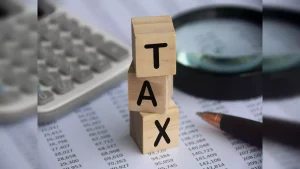In today’s complex financial world, you need to know the ins and outs of tax planning and saving to protect your finances and get the most out of your money. Planning your taxes isn’t just something you do at the end of your fiscal year; This is an important part of your overall financial plan. This means looking at your finances from a tax efficiency perspective so you can plan your expenses in a way that reduces your tax bill and improves compliance. This article discusses the importance of saving money and tax planning. It gives you tips and ideas to help you deal with taxes and improve your financial health.
1. Understand what tax planning is and its importance
Tax planning is an important part of managing your own money. This means investing and making financial choices that can legally reduce your tax bill. When it comes to building wealth over time, the right approach to tax planning can have a significant impact on your savings, investment returns, and more.
Improve financial efficiency through tax planning
When you plan your taxes properly, you can ensure that you take advantage of all the tax breaks, deductions, and benefits to reduce your tax bill. This can save you money and reduce your tax bill. It also gives you more money to spend or save for investments.
Smart investments can reduce taxes
You can save a lot on taxes by putting money into retirement accounts (401(k)s, IRAs), health savings accounts (HSA), and college savings accounts (529 plans). Making these purchases will save you on taxes and ensure you have money for the future.
2. Why saving is important for tax planning
Savings are a very important part of tax planning. By putting money in a tax-advantaged savings account, you can achieve two goals at the same time: increase your wealth and reduce your tax bill.
Build a strong financial foundation
Strategic tax planning can help you save money and build financial security. For example, having an emergency fund is important to cover unexpected expenses without having to change your financial plans or take out a high-interest loan.
Retirement savings and tax deductions
Putting money into a retirement plan not only protects your future, it can also give you an immediate tax deduction. Putting money in a traditional retirement account can reduce your taxable income, meaning your current tax bill will be lower.
3. Tips to save money and plan your taxes well
Comply with tax laws
Tax laws are constantly changing, so it’s important to stay up to date with the latest rules. Understanding new tax credits, deductions and changes in tax brackets can help you make informed choices and get the most out of your tax plan.
Diversify your investments
By diversifying your investments, you also spread your tax liability. A mix of taxable, tax-deferred, and tax-free investments can help you earn the best after-tax returns and give you more financial freedom.
Take advantage of tax credits and deductions
An important part of tax planning is taking advantage of discounts and credits. A tax deduction reduces the amount of tax you have to pay, while a tax credit reduces the amount of your tax bill. Mortgage interest, medical expenses, and charitable contributions are all common deductions. The education discount and the employment discount, on the other hand, are ordinary credits.
Think about when your income and expenses occur
When you file your taxes, it can have a major impact on the outcome. Depending on your current tax bracket and how much income you expect to earn in the future, it may be better to accelerate your deductions to this year or defer your income to next year.
Get professional help
Planning your taxes can be difficult, and speaking to a tax expert or financial planner can help you get advice tailored to your situation. They can help you understand the tax rules, find ways to save on taxes and create a complete plan for your money.
4. New ways to save money and plan taxes
Although financial markets and tax rules change over time, saving money and tax planning are always important to your financial health. To lower your taxes, grow your savings, and achieve your long-term financial goals, you must be proactive and knowledgeable about tax planning.
Adapt to changes in tax law
It is important to remain flexible and open to changes in tax law. By regularly reviewing your financial plan, you can stay compliant with the latest tax regulations and take advantage of ways to save on taxes.
Use technology to save taxes
Today, technology has become an important part of tax planning. Online tax planning tools and software can help individuals and businesses file their taxes faster and more accurately, so they follow the rules and save as much money as possible.
Conclusion
The importance of planning your taxes and saving money to improve your financial health cannot be overstated. People can lower their tax bills, put more money in their pockets, and set themselves up for future financial success by carefully planning their taxes and saving money regularly. Keep in mind that tax planning is something you need to do year-round, and there may be times when you need professional help. Harness the power of tax planning and savings to build your financial future. Knowing what to do and taking action can help you navigate the complex tax system, pay as little tax as possible, and improve your financial situation.
FAQs
1. Why is tax planning important?
Tax planning is important because it helps people and businesses pay as little tax as possible so they don’t have to. This can save you a lot of money, which you can then reuse or store for later use.
2. How will this affect my savings if I plan to pay taxes?
You can save more taxes by reducing your taxable income and the amount of tax you owe. With more money in your pocket, you can use it to reach your savings goals.
3. What are the common tax planning methods?
Some common strategies include putting money into retirement accounts such as IRAs and 401(k)s, investing in mutual funds that don’t charge high taxes, using health savings accounts (HSAs), and taking all possible tax credits and deductions.
4. Can tax planning help me save for retirement?
Yes, tax planning is an important part of retirement planning. You can grow your retirement savings faster if you put as much money as possible in a tax-advantaged retirement account. That’s because these accounts often offer tax-free or deferred growth.
5. How often should I review my tax plan?
You should review your tax plan annually as tax rules, your income, or financial goals change. You should also review your financial plan if something big happens in your life, such as getting married, divorced, having a baby, or changing jobs.
6. What is the difference between planning to pay taxes and not planning to pay taxes?
Tax planning is a legal way to reduce your taxes by using various methods allowed by tax laws. But tax evasion occurs when you deliberately lie or withhold information from the tax authorities to reduce your tax bill, which is illegal.

